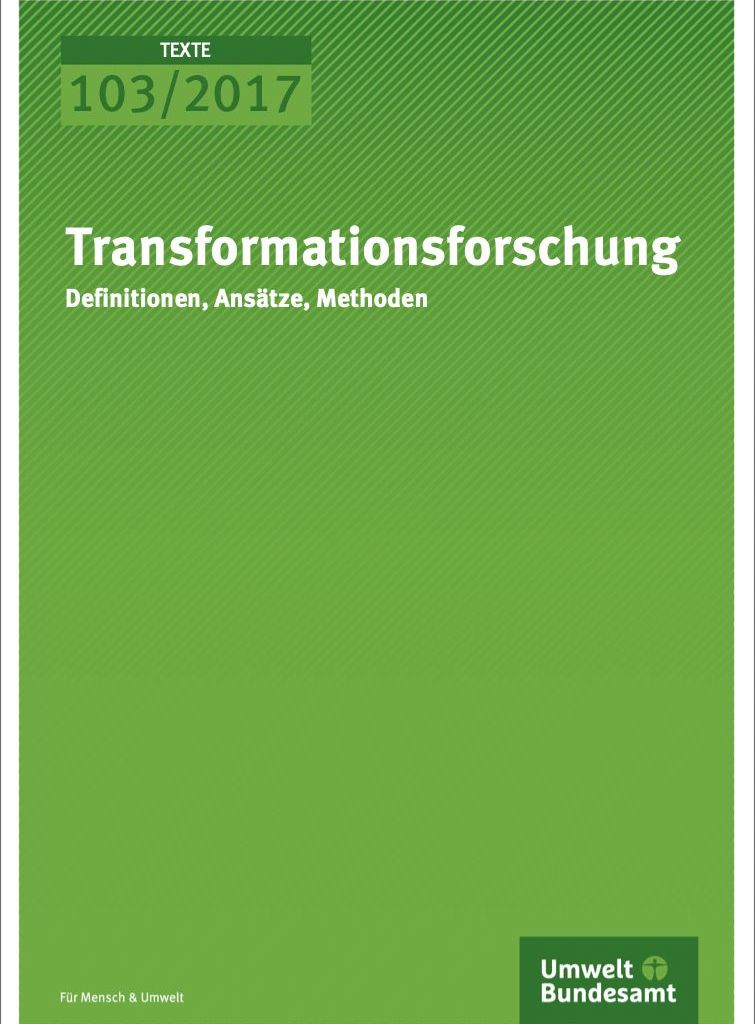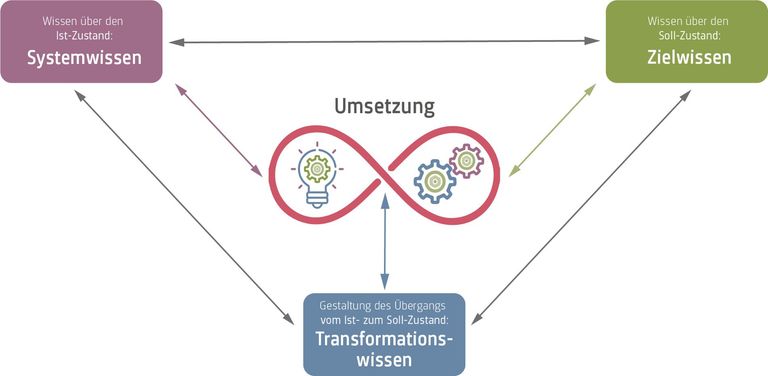Transformation research & transformative research
Based on the literature and a survey of the Academies network, we briefly explain for specialist audiences how the terms sustainability transformation and sustainability transition are currently used in the Swiss research landscape and how they relate to research on sustainability transformations.
Transformation research and transformative research
Transformation research and transformative research deal with processes of transformation. They differ in the types of knowledge they generate and in the role of the researchers.
Transformation research is descriptive-analytical. It explores the conditions under which transformations occur, the roles played by different actors and mechanisms, and the factors that help or hinder change. It focuses on how systems are structured and function (systems knowledge), documents existing goals (target knowledge), and – by analysing transformation processes – contributes to know-how regarding how desired future conditions can be achieved (transformation knowledge).
Transformative research is distinguished by the active engagement of science in the transformation: Together with other societal actors, researchers foster or accompany specific processes of change. Transformative research draws on the systems knowledge generated by transformation research, engages directly in the documentation (and, as needed, negotiation) of target knowledge, and develops detailed transformation knowledge.
Research projects often contain specific questions and activities that can be classified as transformation research, and others that can be classified as transformative research. Accordingly, some authors (cf. Wittmayer & Köhlner 2017) argue that transformation research should be adopted as an umbrella term, and then distinguished as either descriptive-analytical or transformative in its approach.
Reading tips:
Research on sustainability transformations
Studies on sustainability transformations employ the approaches of transformation research and transformative research, focussing in particular on societal transformations towards greater sustainability. Other approaches employed by studies on sustainability transformation may be found here.



